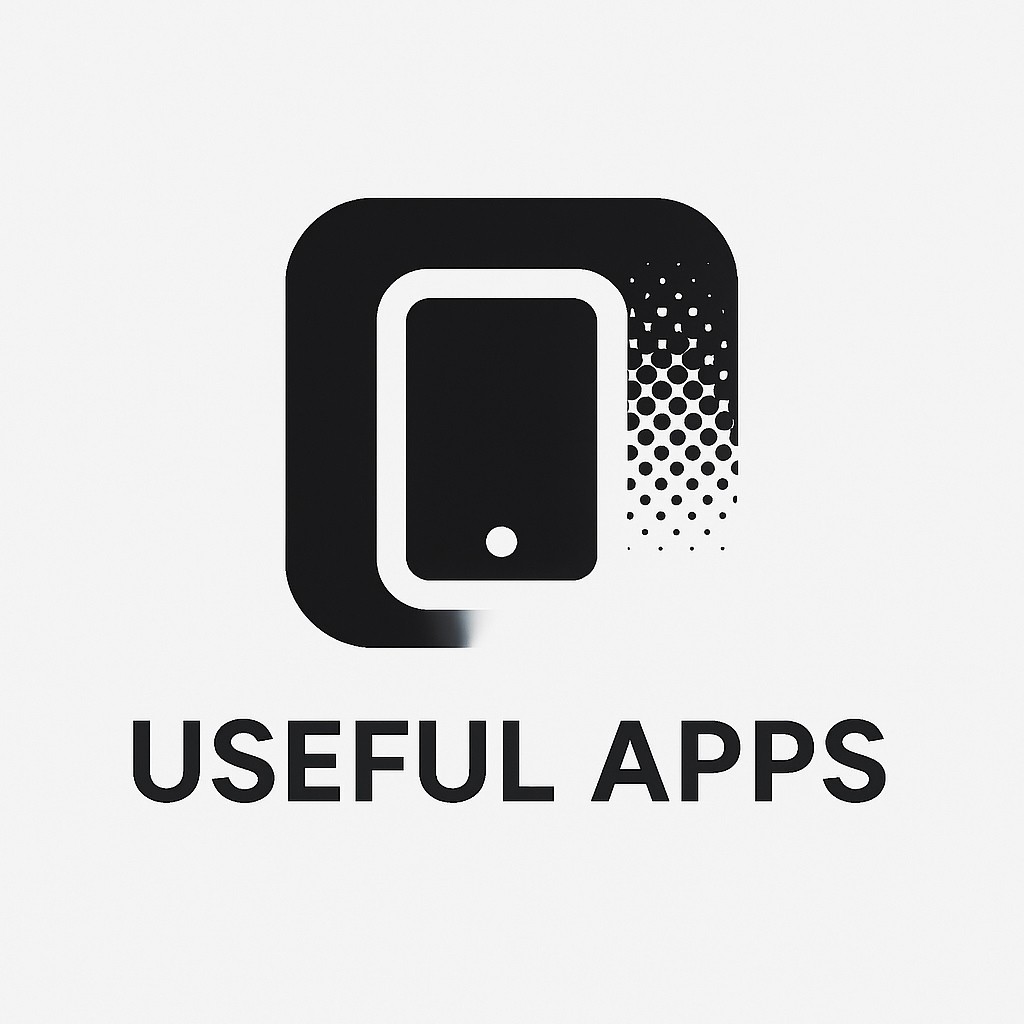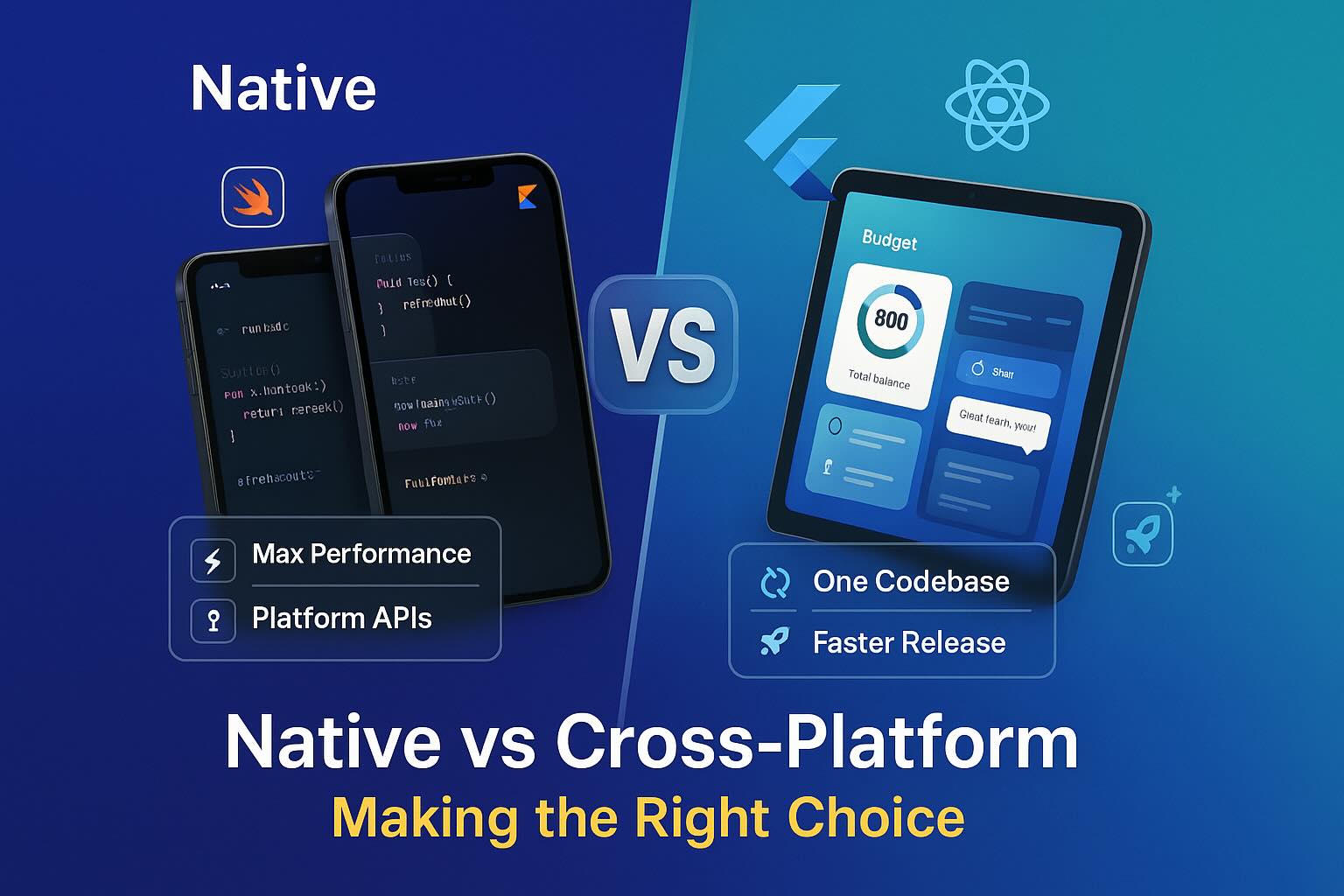Native vs. Cross-Platform App Development: Making the Right Choice
When embarking on a mobile app development project, one of the first and most critical decisions is choosing between native and cross-platform development approaches. Each methodology offers distinct advantages and limitations that can significantly impact your project's timeline, budget, and outcome.
Table of Contents
- Understanding Native App Development
- Understanding Cross-Platform Development
- Making the Right Decision for Your Project
- A Hybrid Approach
- Make the Right Choice for Your Project
Understanding Native App Development
Native app development involves building applications specifically for individual platforms using platform-specific programming languages and tools:
- iOS: Swift or Objective-C with Xcode
- Android: Kotlin or Java with Android Studio
Advantages of Native Development
- Superior Performance: Native apps can fully leverage device capabilities and hardware features, resulting in faster execution and smoother user experiences
- Platform-Specific Design: Adherence to platform design guidelines ensures intuitive interfaces that meet user expectations
- Direct Access to APIs: Immediate access to the latest platform features and APIs without waiting for third-party support
- Enhanced Security: Better protection mechanisms and easier implementation of advanced security features
Challenges of Native Development
- Higher development costs for multi-platform deployment
- Longer development timelines when targeting both iOS and Android
- Separate codebases require maintenance across platforms
- Specialized developer expertise needed for each platform
Understanding Cross-Platform Development
Cross-platform approaches allow developers to write code once and deploy across multiple platforms using frameworks like:
- Flutter: Google's UI toolkit using Dart language
- React Native: Facebook's JavaScript framework
- Xamarin: Microsoft's C# framework
Advantages of Cross-Platform Development
- Cost Efficiency: Significant reduction in development costs with a single codebase
- Faster Time-to-Market: Streamlined development process allows quicker deployment across platforms
- Easier Maintenance: Updates and fixes applied to a single codebase
- Consistent User Experience: Similar look and feel across different platforms
Challenges of Cross-Platform Development
- Potential performance limitations compared to native apps
- Occasional delays accessing new platform features
- Some complex features may require native code bridges
- Design compromises to accommodate multiple platforms
Making the Right Decision for Your Project
Consider these factors when choosing your development approach:
- Project Complexity: Highly complex apps with advanced features may benefit from native development
- Budget Constraints: Limited budgets typically favor cross-platform approaches
- Timeline Requirements: Tight deadlines may be better served by cross-platform solutions
- Performance Needs: Performance-critical applications often demand native development
- Target Audience: Consider which platforms your users primarily use
For more insights on mobile app development trends that might influence your decision, read our article on The Evolution of Mobile App Development: Trends for 2024.
A Hybrid Approach
Many successful projects take a nuanced approach, utilizing cross-platform frameworks for most functionality while implementing performance-critical features using native code. This hybrid strategy can offer the best of both worlds in many scenarios.
Make the Right Choice for Your Project
At THE USEFUL APPS, we have extensive experience with both native and cross-platform development approaches. Our team can assess your specific requirements and recommend the most suitable development strategy for your unique situation.
Whether you choose native, cross-platform, or a hybrid approach, we ensure your application delivers an exceptional user experience while meeting your business objectives.
Our comprehensive mobile app development services include:
- Strategic Consultation: Helping you choose the right development approach
- iOS App Development: Native Swift and Objective-C development
- Android App Development: Native Kotlin and Java development
- Cross-Platform Development: Flutter and React Native expertise
- UI/UX Design: Creating intuitive, engaging user experiences
- App Maintenance: Ongoing support and updates
Need help choosing between native and cross-platform development?
Our experienced team can guide you through the decision-making process, taking into account your specific business requirements, budget, timeline, and long-term goals. We've helped numerous businesses make this critical choice and deliver successful mobile applications.
Schedule a free consultation where we'll assess your project requirements and recommend the best development approach. Our team will provide you with a clear roadmap and transparent pricing for your mobile app project.
Explore our Plans & Pricing to see how our flexible engagement models support both native and cross-platform projects, or check out our case studies to see examples of successful implementations using different approaches.
For ongoing support after launch, learn about our app maintenance strategies and explore our comprehensive maintenance packages to ensure your application continues to perform optimally regardless of the development approach you choose.


